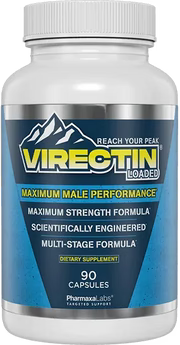In today’s health and fitness landscape, supplements promising to enhance athletic performance, support weight loss, or even improve cognitive function are ubiquitous. Among these, test boosters have garnered significant attention, positioning themselves as the go-to solution for men seeking to elevate their testosterone levels naturally. But what exactly are test boosters, and do they live up to the hype? Whether you’re a fitness enthusiast, someone experiencing symptoms of low testosterone, or simply curious about these supplements, understanding the truth behind test boosters is essential.
Understanding Test Boosters: What Are They?
Testosterone is a crucial hormone in the male body, responsible for regulating muscle mass, bone density, red blood cell production, and overall vitality. As men age, testosterone levels naturally decline, which can lead to a variety of symptoms such as decreased energy, reduced libido, and diminished muscle mass. Test boosters are dietary supplements designed to increase the body’s testosterone levels through natural ingredients.
How Are Test Boosters Made?
The formulation of test boosters typically involves a combination of herbal extracts, vitamins, minerals, and other natural compounds believed to influence testosterone production. Common ingredients include:
- Tribulus Terrestris: A plant extract traditionally used to enhance libido and athletic performance.
- Fenugreek: Known for its potential to support healthy testosterone levels and improve body composition.
- D-Aspartic Acid: An amino acid that may play a role in hormone production.
- Zinc and Magnesium: Essential minerals involved in testosterone synthesis and overall hormonal health.
- Vitamin D: Linked to numerous health benefits, including hormone regulation.
Manufacturers blend these ingredients in varying concentrations, aiming to create a synergistic effect that boosts testosterone levels naturally. Some test boosters may also include additional components like B vitamins, antioxidants, and adaptogens to further support hormonal balance and overall well-being.
The Rationale Behind Using Test Boosters
The primary motivation for using test boosters is to counteract the natural decline in testosterone that occurs with age or due to lifestyle factors. Higher testosterone levels are often associated with increased muscle mass, improved energy levels, enhanced mood, and better sexual health. Additionally, athletes and bodybuilders may use test boosters to gain a competitive edge, improve performance, and accelerate recovery times.
Beyond athletic performance, some individuals use test boosters to address symptoms of low testosterone, such as fatigue, depression, and decreased cognitive function. By potentially enhancing testosterone levels, test boosters aim to improve these aspects of health and quality of life.
Scientific Research and Expert Insights
The effectiveness of test boosters varies widely depending on their ingredients and the individual's physiology. Let’s explore what the science says about some common components:
Tribulus Terrestris
While traditionally used to enhance libido, scientific studies offer mixed results regarding its ability to increase testosterone levels. Some research indicates minimal to no impact on testosterone production in healthy men, while other studies suggest potential benefits in specific populations, such as those with existing hormonal imbalances or certain health conditions.
Fenugreek
Studies on fenugreek extract have shown promise in improving testosterone levels and body composition. A study published in the International Journal of Exercise Science found that men supplementing with fenugreek experienced significant increases in testosterone and strength compared to a placebo group. Additionally, fenugreek may help reduce body fat and enhance muscle fullness, making it a popular ingredient in many test booster formulations.
D-Aspartic Acid
Research on D-aspartic acid presents a nuanced picture. Some studies show a temporary boost in testosterone production, particularly in men with lower baseline levels, while others indicate negligible long-term effects. D-aspartic acid is thought to stimulate the release of hormones that can lead to increased testosterone production, but its efficacy may decline with prolonged use.
Zinc and Magnesium
These minerals are essential for testosterone synthesis, and deficiencies can lead to reduced hormone levels. Supplementation in deficient individuals has been shown to restore testosterone levels to normal ranges. Zinc plays a role in enzyme function related to testosterone production, while magnesium may support the body's ability to produce and regulate testosterone effectively.
Vitamin D
Adequate levels of vitamin D are crucial for overall health, including hormonal balance. Some studies suggest a correlation between higher vitamin D levels and increased testosterone, though more research is needed to establish a direct causative relationship. Vitamin D deficiency has been linked to lower testosterone levels, and supplementation may help improve hormonal health in deficient individuals.
Experts agree that while certain ingredients in test boosters have potential benefits, the overall efficacy of these supplements depends on the quality and combination of ingredients, as well as individual health factors. It's important to choose test boosters with scientifically backed ingredients and to use them as part of a broader health and fitness regimen.
Health Claims vs. Reality
The marketing of test boosters often touts impressive health benefits, ranging from muscle growth and enhanced athletic performance to improved mood and sexual health. However, it’s essential to distinguish between claims and scientific evidence:
Muscle Mass and Strength
Some studies support the idea that specific ingredients in test boosters can aid in muscle growth and strength, especially when combined with resistance training. For instance, fenugreek and D-aspartic acid have been linked to improvements in muscle mass in certain populations. However, results are not universal, and individual responses may vary based on factors like genetics, diet, and training intensity.
Energy and Mood
Testosterone plays a role in energy levels and mood regulation. By potentially increasing testosterone, test boosters may help alleviate fatigue and improve mood in individuals with low hormone levels. Improved energy can lead to better performance in daily activities and workouts, while enhanced mood can contribute to overall mental well-being. However, the impact on those with normal testosterone levels is less clear, and excessive testosterone can sometimes lead to mood swings or irritability.
Sexual Health
Ingredients like Tribulus Terrestris are marketed for libido enhancement, and some users report improvements. Enhanced libido and sexual performance can contribute to better intimate relationships and personal satisfaction. Nonetheless, scientific backing is inconsistent, and more robust studies are needed to confirm these effects definitively. Users should approach these claims with cautious optimism and realistic expectations.
While some benefits of test boosters are supported by research, others remain speculative, highlighting the importance of approaching these supplements with realistic expectations and a critical eye towards the evidence.
Potential Downsides, Limitations, and Precautions
Like any supplement, test boosters come with potential risks and limitations. It’s crucial to be aware of these factors before incorporating them into your regimen:
Lack of Regulation
Dietary supplements are not strictly regulated by the FDA, leading to variability in product quality, ingredient transparency, and potency. Consumers may encounter products that do not contain the advertised ingredients or include harmful additives. This lack of oversight can result in inconsistent results and potential health risks.
Side Effects
Depending on the ingredients, test boosters can cause side effects such as acne, sleep disturbances, mood swings, and digestive issues. High doses of certain minerals like zinc can lead to toxicity, causing nausea, vomiting, and impaired immune function. Excessive vitamin D intake may cause hypercalcemia, leading to weakened bones and kidney issues. It's essential to adhere to recommended dosages to minimize the risk of adverse effects.
Hormonal Imbalance
Artificially altering hormone levels can disrupt the body’s natural balance, potentially leading to long-term health issues. For instance, elevated testosterone levels may convert to estrogen, causing unwanted side effects like water retention and breast tissue growth in men. Additionally, the body may reduce its own testosterone production in response to supplementation, potentially leading to dependency on test boosters for maintaining hormone levels.
Medication Interactions
Test boosters can interact with medications, including those for diabetes, hypertension, and other chronic conditions. For example, zinc can interfere with certain antibiotics, while vitamin D may interact with medications that affect calcium metabolism. It’s essential to consult a healthcare provider before starting any new supplement, especially if you’re taking prescription medications or have underlying health conditions.
Variable Efficacy
Not all test boosters are created equal, and their effectiveness can vary significantly based on individual health status, age, and the specific formulation of the product. Factors such as the presence of active ingredients, their bioavailability, and the overall quality of the supplement play crucial roles in determining the outcomes. Users may experience inconsistent results, with some seeing benefits while others notice little to no change.
Practical Tips for Consumers
If you’re considering adding a test booster to your routine, keep the following tips in mind to make an informed and safe decision:
- Consult a Healthcare Professional: Before starting any supplement, talk to your doctor or a qualified healthcare provider to assess your individual needs, especially if you have underlying health conditions or are taking other medications.
- Research Ingredients: Look into the scientific evidence supporting each ingredient in the test booster. Prioritize products with well-researched components that have shown efficacy in clinical studies.
- Check for Third-Party Testing: Opt for supplements that have been tested by independent organizations, such as NSF International or ConsumerLab, to ensure quality, purity, and accurate labeling.
- Read Reviews and Testimonials: While user reviews can provide additional insights, be cautious of overly positive or negative feedback that may not be representative. Seek balanced perspectives to gauge the product’s effectiveness and potential side effects.
- Start with the Lowest Effective Dose: To minimize the risk of side effects, begin with the lowest recommended dose and monitor your body’s response. Gradually adjust as needed under professional guidance.
- Maintain a Balanced Diet and Healthy Lifestyle: Supplements should complement a well-rounded diet and regular exercise, not replace them. Focus on maintaining healthy habits to support overall hormonal balance and well-being.
- Monitor Your Health: Keep track of any changes in your symptoms, energy levels, mood, and physical performance. Regular blood tests can help monitor hormone levels and assess the supplement’s impact.
Integrating Test Boosters into a Balanced Diet
To maximize the potential benefits of test boosters, it’s crucial to integrate them into a comprehensive health and fitness plan:
Balanced Nutrition
Ensure your diet is rich in proteins, healthy fats, and essential nutrients that support hormone production. Foods like lean meats, fatty fish, nuts, seeds, and legumes provide the building blocks for testosterone synthesis. Incorporating a variety of nutrient-dense foods can enhance the effectiveness of test boosters by providing the necessary components for hormone health.
Regular Exercise
Engage in a combination of resistance training and cardiovascular exercises to naturally boost testosterone levels and improve overall fitness. Strength training, in particular, has been shown to enhance muscle mass and hormonal health. High-intensity interval training (HIIT) can also be effective in promoting testosterone production. Combining exercise with test boosters may lead to more significant improvements in muscle growth and strength.
Adequate Sleep
Quality sleep is vital for hormone regulation. Aim for 7-9 hours of restful sleep each night to support testosterone production and overall health. Poor sleep quality and sleep deprivation can negatively impact testosterone levels, making adequate rest a critical component of any regimen involving test boosters.
Stress Management
Chronic stress can lead to elevated cortisol levels, which may negatively impact testosterone. Incorporate stress-reducing practices such as meditation, yoga, or deep-breathing exercises into your daily routine. Managing stress effectively can help maintain hormonal balance and enhance the benefits of test boosters.
Healthy Weight Maintenance
Maintaining a healthy weight is essential, as excess body fat can contribute to hormonal imbalances and reduced testosterone levels. A balanced diet and regular exercise play key roles in weight management. Reducing body fat through these means can naturally support testosterone production, complementing the effects of test boosters.
Advanced Insights: Customizing Your Approach with Test Boosters
For those looking to optimize their use of test boosters, a personalized approach can yield better results. Understanding your unique health profile, fitness goals, and lifestyle factors can help tailor your supplementation strategy effectively.
Assessing Your Baseline Hormone Levels
Before starting a test booster regimen, it's beneficial to have your hormone levels tested. Knowing your baseline testosterone levels can help determine whether supplementation is necessary and monitor progress over time. A healthcare provider can offer guidance on appropriate testing and interpretation of results.
Personalizing Your Supplement Stack
Not all test boosters are created equal, and different formulations may work better for different individuals. Some may require higher doses of certain ingredients, while others might benefit more from a specific combination. Experimenting with different products, under professional supervision, can help identify the most effective combination for your needs.
Cycling Test Boosters
To prevent the body from adapting to test boosters and to maintain their effectiveness, some users practice cycling, which involves taking the supplements for a set period followed by a break. This approach can help sustain the supplements' benefits while minimizing the risk of hormonal imbalance or dependence.
Tracking Progress and Adjusting Dosages
Regularly monitoring your progress through tracking workouts, energy levels, mood, and periodic blood tests can provide insights into the effectiveness of your test booster regimen. Based on these observations, you can adjust dosages or switch products as necessary to achieve optimal results.
Conclusion: Weighing the Pros and Cons of Test Boosters
Test boosters present an intriguing option for individuals seeking to enhance their testosterone levels and improve related aspects of health and performance. While certain ingredients show promise in supporting hormonal balance and physical fitness, the overall effectiveness of these supplements can vary widely. Potential benefits must be carefully balanced against the risks of side effects, lack of regulation, and variability in product quality.
Ultimately, the decision to use a test booster should be made in consultation with a healthcare professional, taking into account individual health needs, existing medical conditions, and personal fitness goals. By approaching test boosters with informed caution and integrating them into a holistic health plan, consumers can better navigate the complexities of hormonal supplementation and make choices that support their long-term well-being.
In a market flooded with wellness products, understanding the truth about test boosters empowers you to make decisions that align with your health objectives. Whether you choose to incorporate a test booster into your routine or focus on natural methods to support testosterone levels, prioritizing informed choices and a balanced lifestyle will always be key to achieving optimal health and performance.
```
More stories

How to Support Long-Term Male Sexual Health with Daily Habits





